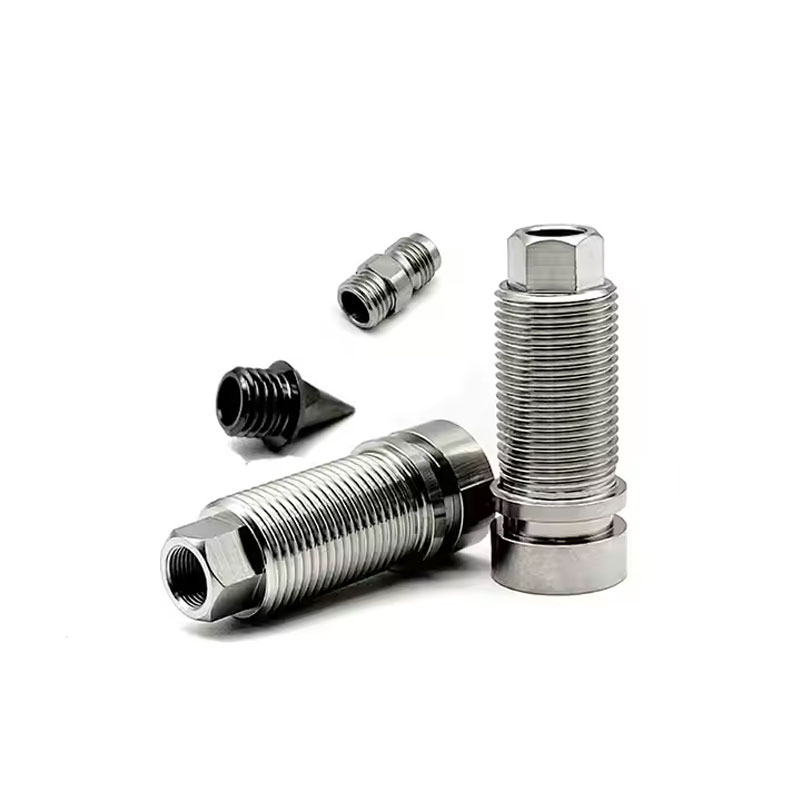
In the fast-evolving automotive industry, the demand for durable, high-precision, and lightweight components is higher than ever. One of the most critical solutions meeting these needs is automotive part casting. But why should manufacturers prioritize casting methods over other production techniques?
Automotive part casting is the process of creating complex metal components by pouring molten metal into precisely engineered molds. This process allows manufacturers to produce parts with exceptional strength, intricate designs, and consistent quality—attributes that are critical in today’s automotive applications.
Benefits of Automotive Part Casting:
High Strength-to-Weight Ratio: Cast components, particularly those made from aluminum alloys, achieve a lightweight design without compromising structural integrity. Reducing vehicle weight enhances fuel efficiency and overall performance.
Design Flexibility: Casting allows for complex geometries that would be challenging or impossible to achieve with machining or stamping alone. This is particularly important for engine blocks, transmission cases, and suspension components.
Cost Efficiency: For large production volumes, casting is more cost-effective compared to machining from solid metal blocks, as it minimizes material waste and reduces the number of secondary operations.
Thermal Resistance: Many casting materials, such as certain iron and aluminum alloys, offer excellent heat dissipation, making them ideal for engine components exposed to high temperatures.
Key Applications in Modern Vehicles:
Engine components (blocks, cylinder heads)
Transmission housings
Suspension and steering parts
Brake components and housings
Structural supports for electric vehicle battery packs
By understanding these advantages, automotive engineers and procurement specialists can better evaluate how casting methods fit into their production strategies, improving vehicle reliability and longevity.
Casting automotive components requires a highly controlled process to ensure dimensional accuracy, mechanical strength, and surface finish. The two most common casting methods in the industry are sand casting and die casting.
1. Sand Casting:
Sand casting involves creating a mold from sand packed around a pattern. It is highly versatile and suitable for producing large parts with intricate geometries. It is commonly used for engine blocks, large suspension components, and housings.
2. Die Casting:
Die casting uses metal molds and is ideal for high-volume production. It produces parts with excellent dimensional accuracy and smooth surface finish, commonly used for aluminum engine components and transmission housings.
Critical Parameters for Quality Automotive Castings:
| Parameter | Description |
|---|---|
| Material Type | Aluminum alloys, magnesium, iron, or steel depending on strength and weight requirements |
| Tolerance Accuracy | ±0.1 mm to ±0.5 mm depending on component size and function |
| Surface Finish | Ra 0.8 – 3.2 µm for functional and aesthetic components |
| Heat Treatment | Enhances mechanical properties such as tensile strength and hardness |
| Porosity Control | Ensures parts are dense and free of gas pockets that could compromise strength |
| Mechanical Strength | Tensile and yield strength tailored to vehicle component requirements |
Maintaining these parameters ensures that cast parts not only meet OEM standards but also improve vehicle safety and performance.
Advanced Techniques in Automotive Casting:
Vacuum casting to minimize gas entrapment
Low-pressure die casting to improve material density
Precision CNC machining post-casting to achieve high-accuracy interfaces
These techniques collectively ensure that automotive part casting meets the rigorous demands of modern vehicle design and safety standards.
Automotive manufacturers increasingly rely on high-quality cast components to balance performance, cost, and durability. Here’s why quality casting matters:
Enhanced Engine Efficiency: Cast aluminum engine blocks reduce weight while maintaining structural integrity, contributing to better fuel economy and higher engine output.
Durability Under Stress: High-quality casting materials resist fatigue and thermal stress, essential for long-lasting components in critical systems such as brakes and transmissions.
Noise and Vibration Reduction: Properly cast and treated parts minimize vibration and improve vehicle acoustics, enhancing driver comfort.
Environmental Impact: Efficient casting processes reduce material waste and energy consumption, aligning with global sustainability trends in automotive manufacturing.
Common FAQs About Automotive Part Casting:
Q1: What metals are best suited for automotive casting?
A1: Aluminum alloys are preferred for lightweight, high-strength applications like engine blocks and suspension components. Iron is used for parts requiring extreme durability, such as brake components. Magnesium is suitable for specialized lightweight applications, while steel is used in structural components that demand high tensile strength.
Q2: How does casting improve production efficiency compared to machining?
A2: Casting allows manufacturers to produce complex shapes directly from molds, reducing the need for multiple machining operations. This not only lowers production costs but also accelerates manufacturing timelines, especially for high-volume production runs.
By understanding these benefits, manufacturers can make informed decisions about integrating casting into their production lines.
For companies seeking reliable, high-precision automotive castings, Losier stands out as a trusted partner. Leveraging decades of experience and advanced casting technologies, Losier delivers components that meet stringent OEM standards while optimizing performance and cost-efficiency.
Losier specializes in a wide range of casting services:
Aluminum and iron casting for engines, transmissions, and suspensions
Precision machining for critical tolerances
Advanced heat treatment and finishing processes
Whether you are designing a high-performance vehicle or optimizing production for mass-market cars, Losier ensures your components are manufactured with the highest quality and reliability.
Contact us today to discuss your automotive casting needs and discover how Losier can elevate your vehicle production standards.